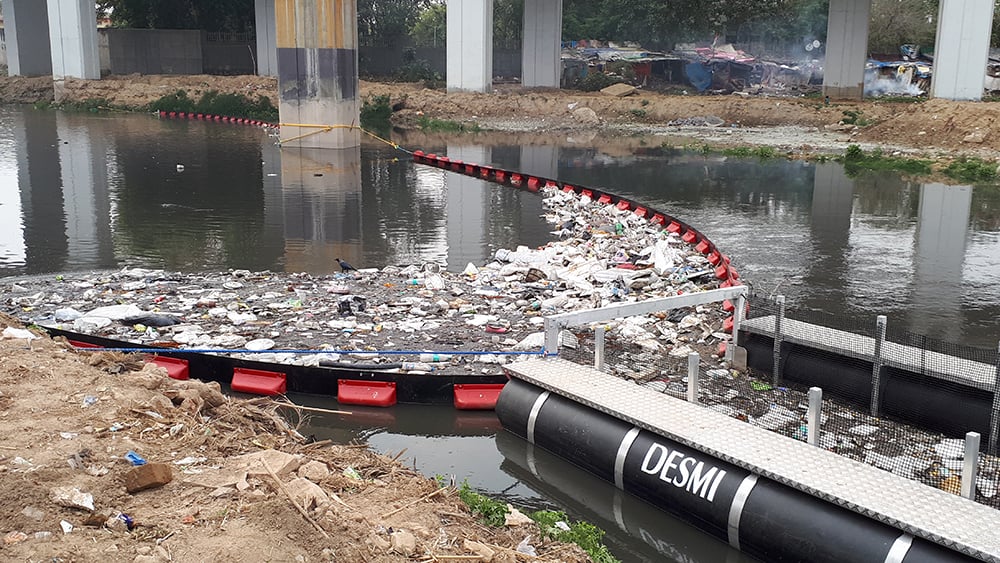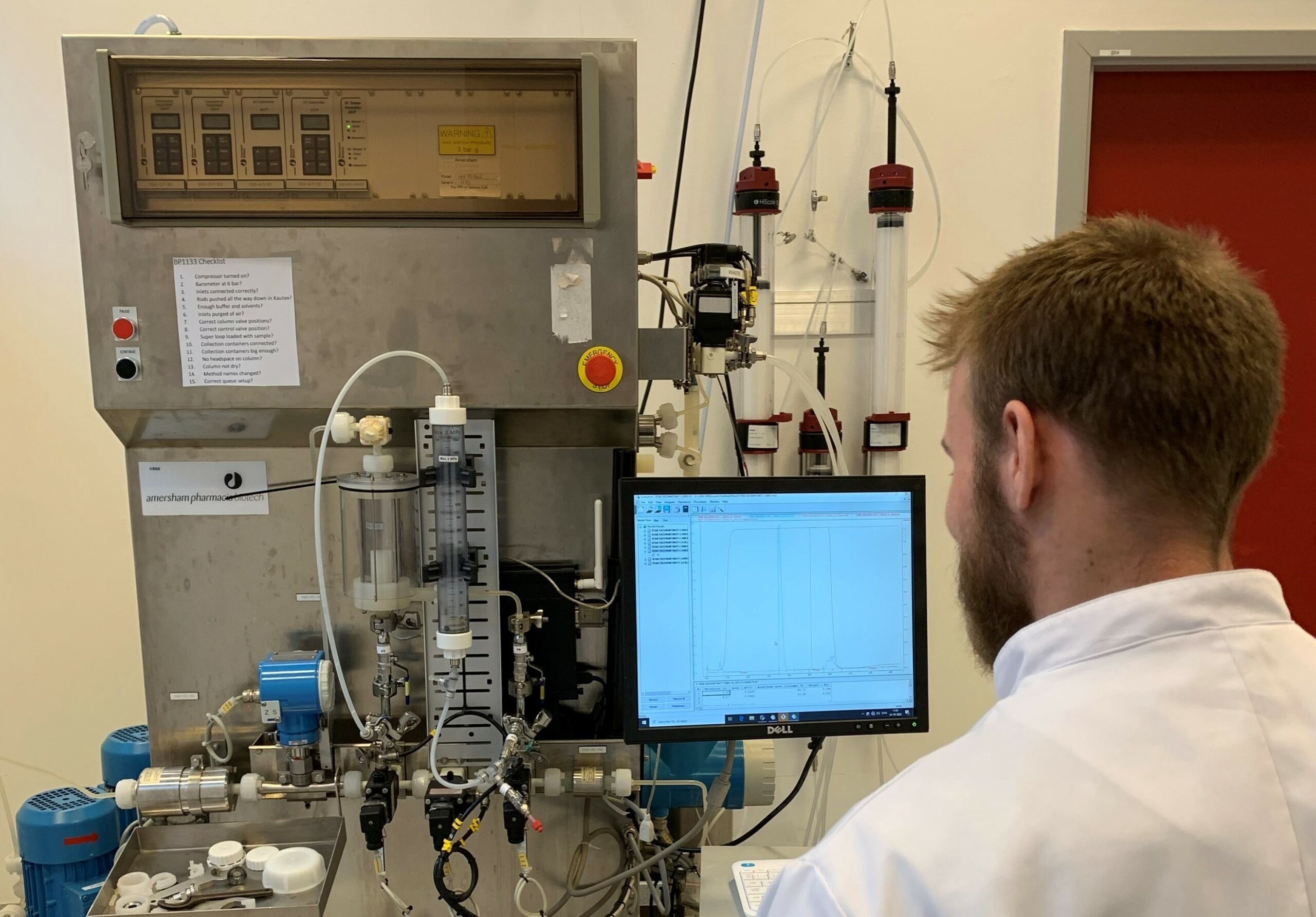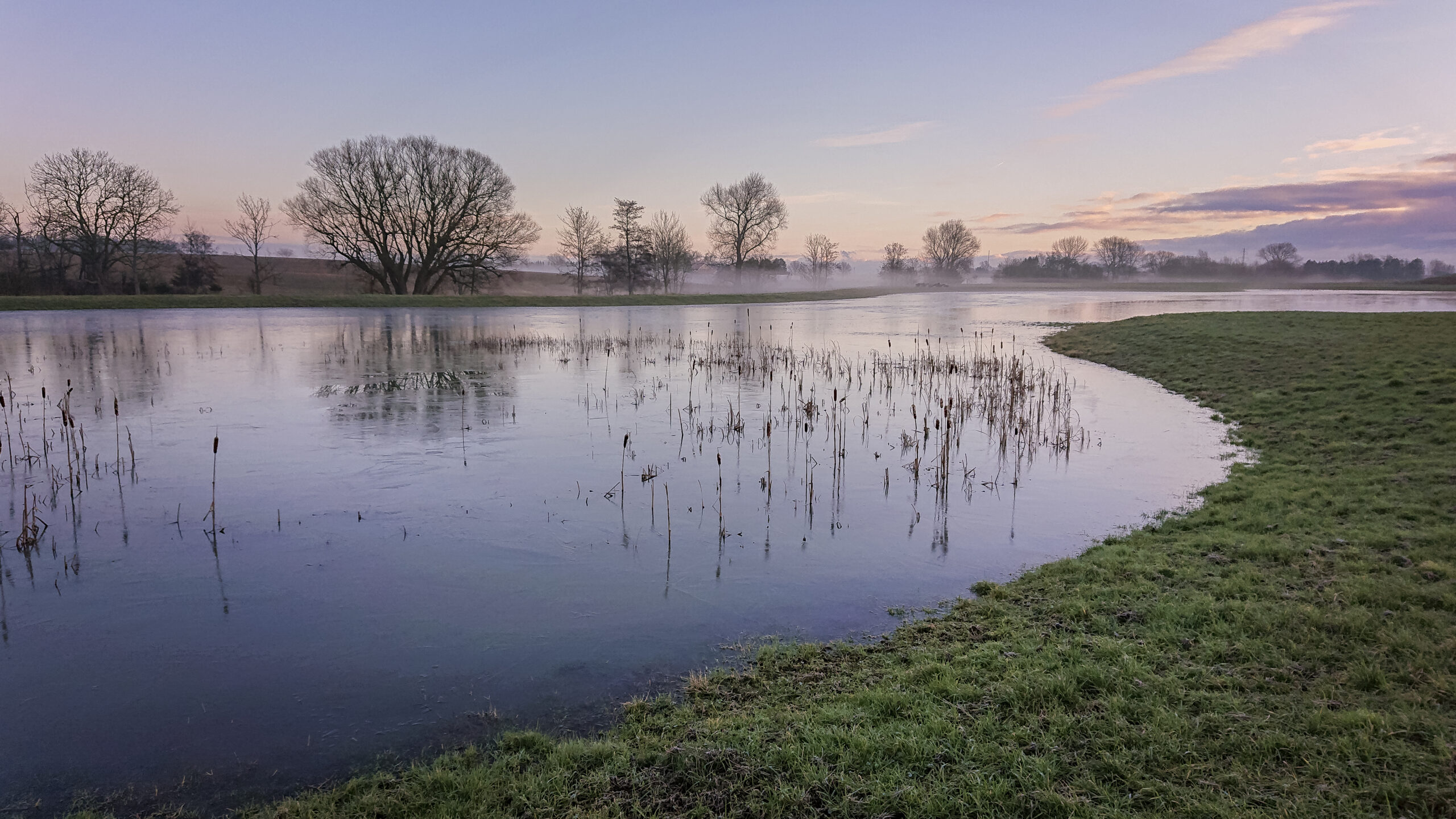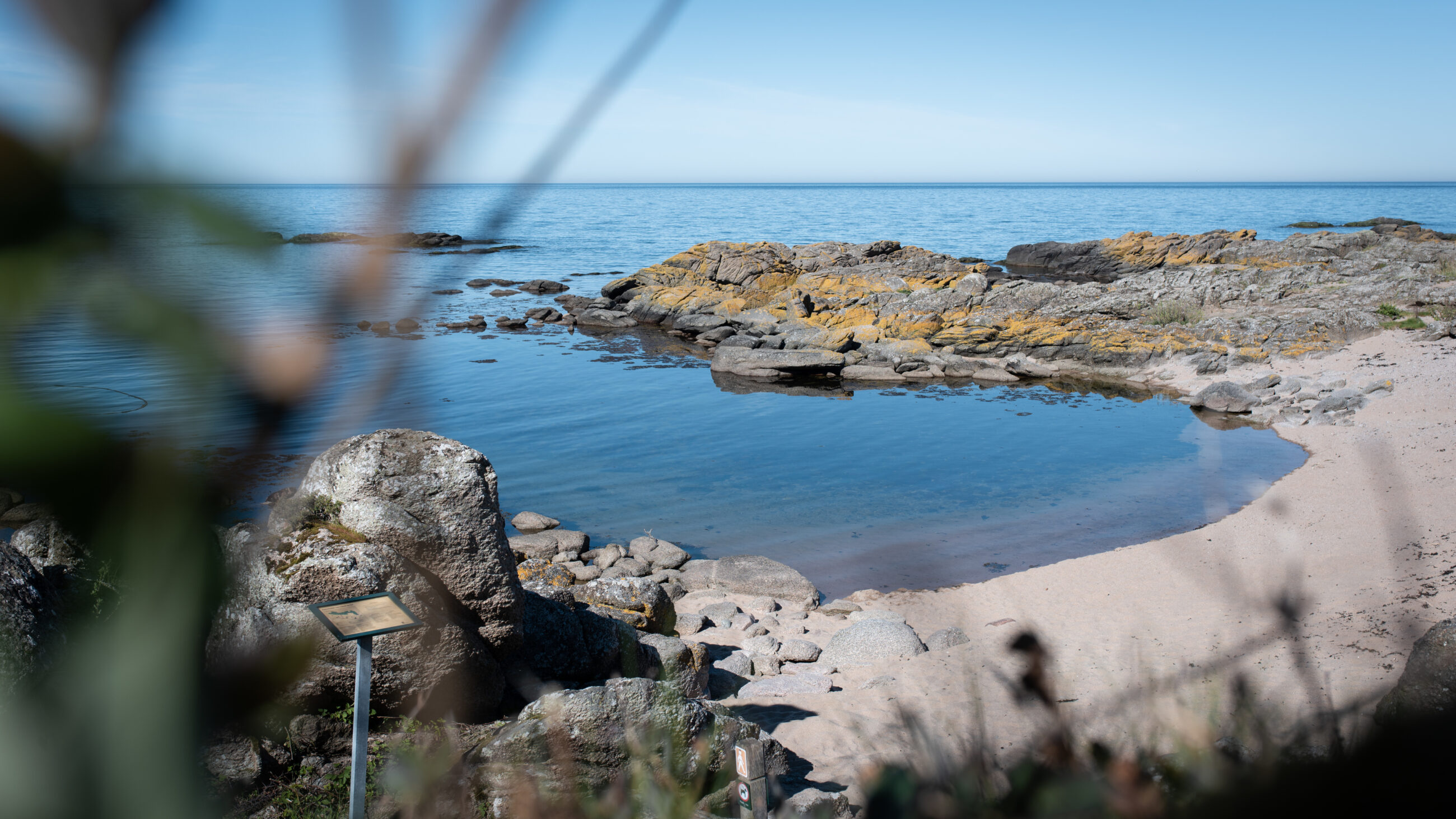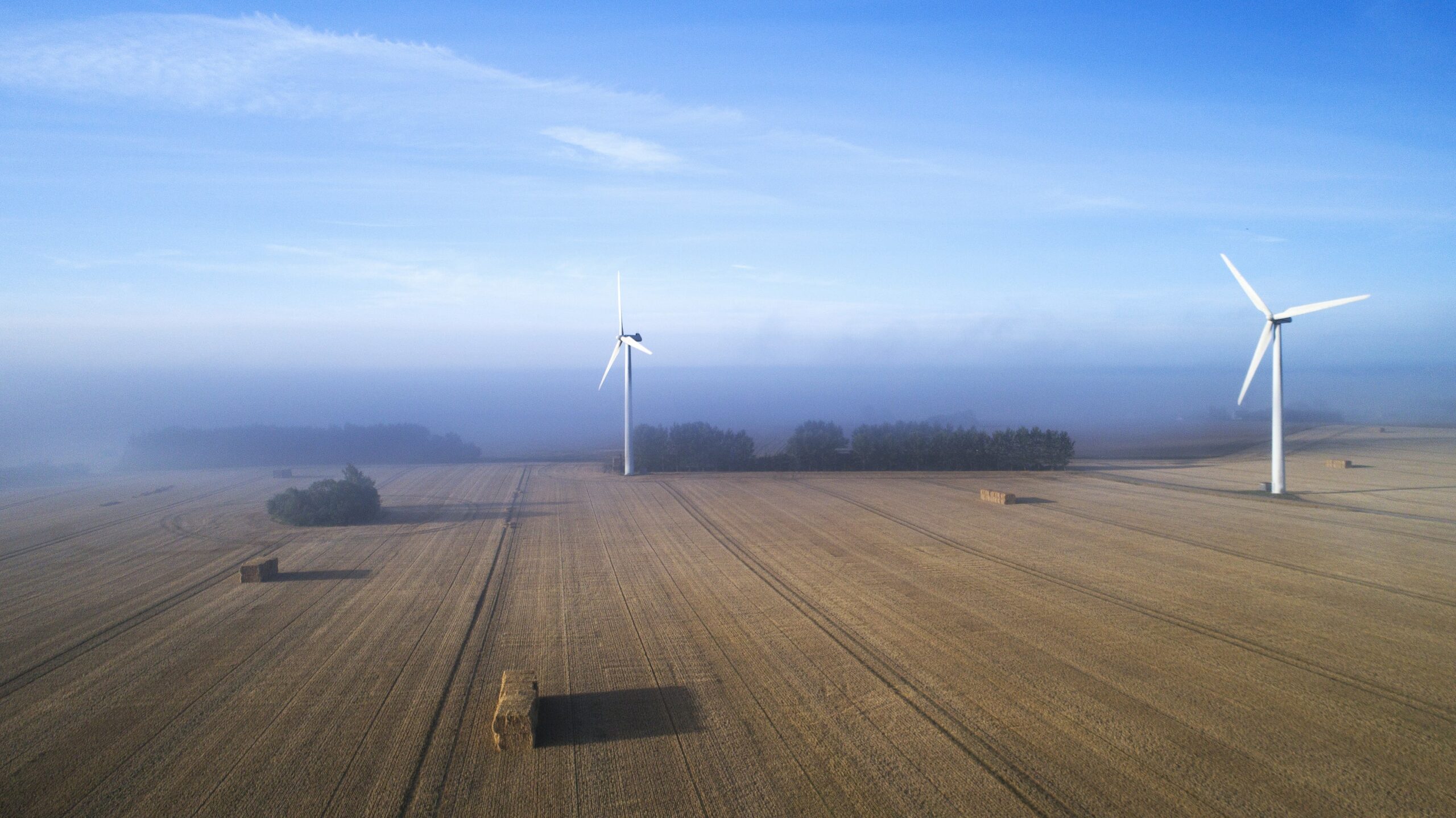News
Circular business models
Recycling of waste to material
Waste management
+1
GREEN TALK: the shift to a circular economy
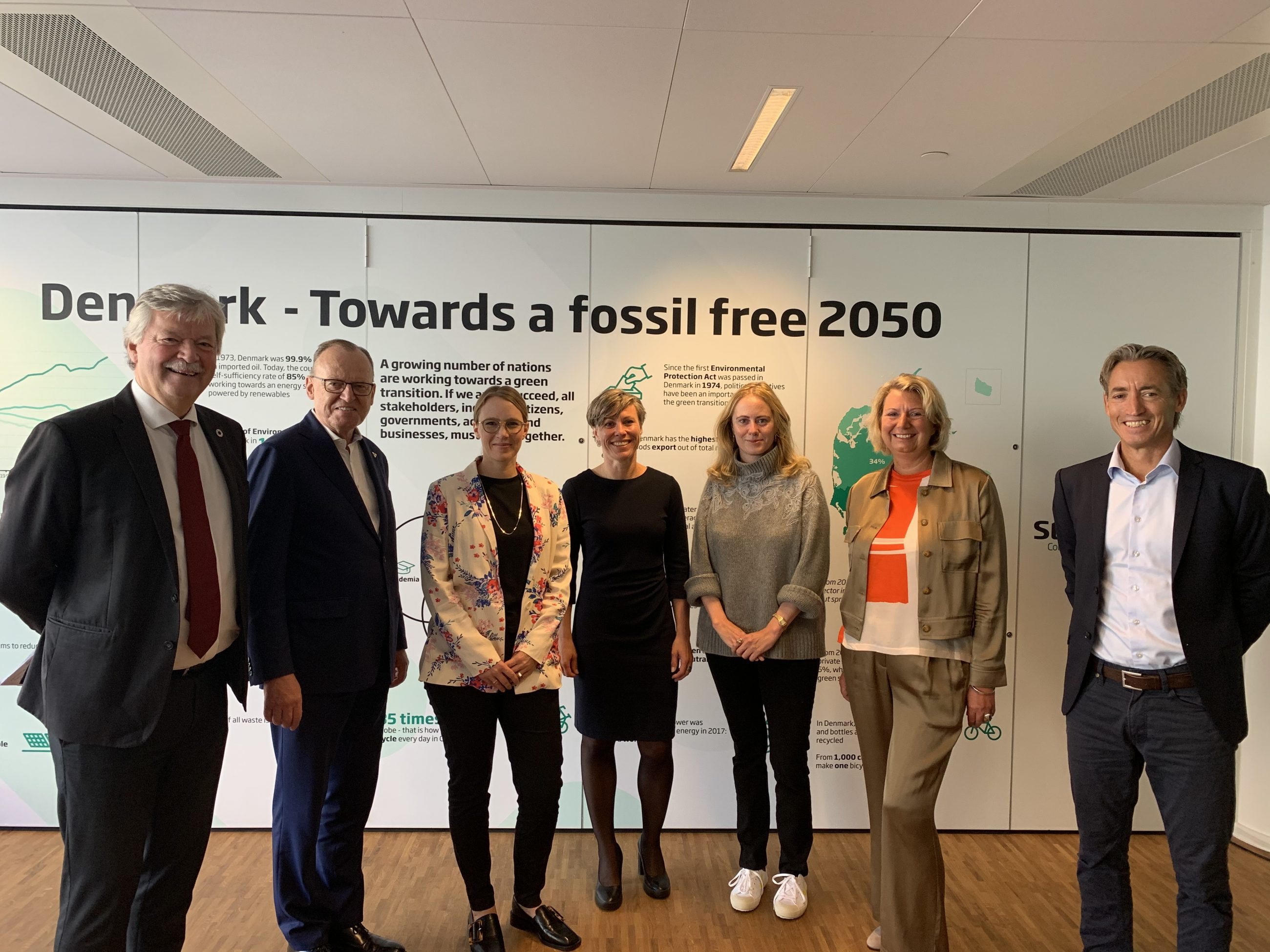

The shift to a circular economy has become an integral and paramount piece in the green transition puzzle – in Denmark as well as globally. The shift entails a change of mindset towards considering waste a resource and integrating the three R’s: reduce, reuse, and recycle. Putting an end to waste, recycling bottles and cans as well as designing circular buildings all play a role in the transition to a circular economy.
Speakers at the GREEN TALK included:
- Lea Wermelin, Danish Minister for Environment
- Heidi Schütt Larsen, Deputy CEO of Dansk Retursystem
- Winni Grosbøll, Mayor of Regional Municipality of Bornholm
- Flemming Besenbacher, Chairman of the Carlsberg Foundation
- Anthony Abbotts, Director of Sustainability at ROCKWOOL Group
- Ditte Lysgaard Vind, Managing Partner of Lendager – The Circular Way
Consumption exceeds our resources
Danish Minister for Environment, Lea Wermelin, began her speech by providing a view on why circular economy is important. She argued that circular economy represents coming back to having profound respect for our nature and for our resources.
“After many, many decades of using and spending our resources as we please, more and more people are finally realising that we must change our ways. We are all part of a circular ecosystem on earth and therefore our global economy must become circular as well. We only have one globe but globally we consume as we have more than one and a half. It cannot keep on going. We have to act”, said Lea Wermelin.
[caption id="attachment_117638" align="alignnone" width="450"]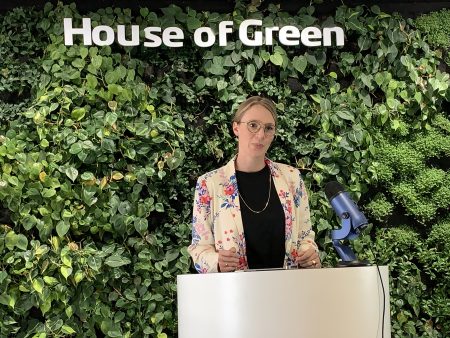
Return bottle systems: prevent plastic in nature and reduce CO2
A way of leading Denmark towards a greener path was on the next speaker’s agenda. Heidi Schütt Larsen, Deputy CEO of Dansk Retursystem, underlined the importance of recycling in loops. For instance, recycling used cans and plastic bottles can have a huge impact on a country’s CO2 emissions.
“Last year we reached 92 percent returned bottles and cans and that means a lot, because it all starts there. If the consumers do not return their empty bottles and cans, there is no need for the system. The culture of doing that is one of the most important keystones in the system. When 92 per cent of all the bottles and cans are recycled, it means that we have a closed loop because the recycled product is used for new bottles and cans, which means that we reduce a lot of CO2 emissions”, said Heidi Schütt Larsen, Deputy CEO of Dansk Retursystem.
-Related solution: REUSE – an alternative recycling station
[caption id="attachment_117639" align="alignnone" width="450"]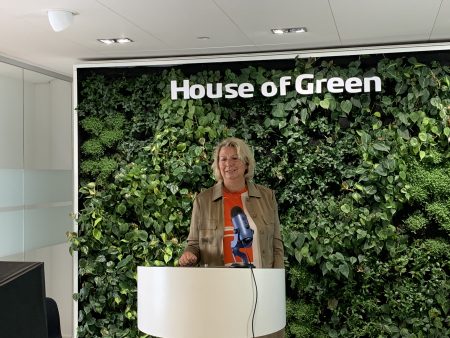
Another advantage of the return system is to prevent plastic ending up in nature, Heidi Schütt Larsen explained.
“If you as a good citizen and a good consumer return your bottles and cans into a recycling system, then there will be no plastic bottles and cans in nature. If we take the example of circular economy and reuse it in other manners in the world, it will make a difference”, she explained.
Seeing society as one coherent value chain
Up next was the GREEN TALK’s first fireside chat with the Mayor of Regional Municipality of Bornholm, Winni Grosbøll, and Chairman of the Carlsberg Foundation, Flemming Besenbacher. Doing this fireside chat the path towards getting to a circular economy was discussed.
[caption id="attachment_117640" align="alignnone" width="450"]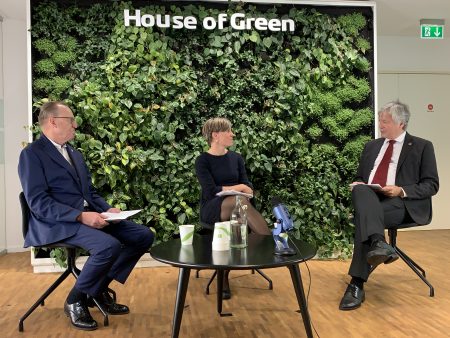
The Danish government and a wide majority of the Danish Parliament has recently entered an agreement securing a climate-neutral waste sector by 2030 with far more recycling and far less incineration. The Danish island of Bornholm wishes to become the first waste-free island in 2032.
“To become the first waste-free island, it is important that the whole island sees itself as one value chain and work in this circular term to see each other as a part of this value chain. Of course, the private households and the families are very important to become waste-free. They have to reuse and reduce their waste. But the companies are important too. Our companies must see each other as partners and as a part of the value chain”, said Winni Grosbøll.
-Related solution: Architecture and better invested resources create better life and climate
Flemming Besenbacher, Chairman of the Carlsberg Foundation, agrees that seeing each other as a value chain and including private households, companies and other stakeholders in society is essential.
“Circular economy is very much embedded in the whole company of Carlsberg. We are doing it internally and we are also trying to engage our consumers”, said Flemming Besenbacher.
One man’s trash becomes another women’s treasure
The second round of yesterday’s GREEN TALK was the fireside chat between Managing Partner of Lendager, Ditte Lysgaard Vind, and Director of Sustainability at Rockwool Group, Anthony Abbotts. Both companies, Lendager and Rockwool Group, are setting new standards for the future vision of circularity in construction and buildings.
[caption id="attachment_117641" align="alignnone" width="450"]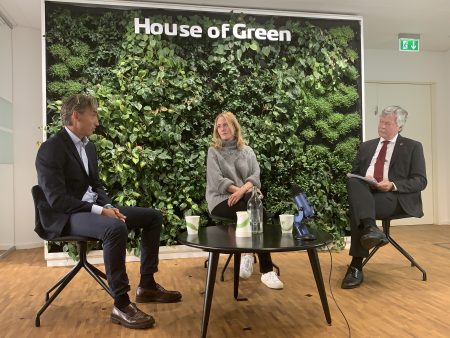
and Ditte Lysgaard Vind, Managing Partner of Lendager – The Circular Way.[/caption]
This sector accounts for more than one third of the waste generated in Denmark. On a global scale, we know that nearly 40 per cent of global CO2 emissions come from the building and construction sector. Consequently, decarbonisation through circular building concepts holds a great potential.
“Essentially, we should look at how to start treating waste as a resource. One man’s trash becomes another women’s treasure and vice versa”, said Ditte Lysgaard Vind.
-Related solution: Creating new products from waste
Durability is key in circular economy
Ditte Lysgaard Vind underlined the importance of choosing the right materials in buildings and constructions to expand the lifetime of each material and product.
“We often experience that older buildings have materials of higher value, because they are of a much better quality than newer materials. That is very unfortunate and therefore it has been part of our innovation. It is something that needs to be addressed at a business model level”, says Ditte Lysgaard Vind.
Director of Sustainability at Rockwool Group, Anthony Abbotts, nods recognisably to that exact statement.
“One of the challenges is that you have many different stakeholders and many different actors and small enterprises and perhaps they do not have the necessary know-how in this field. Therefore the system and the framework itself also needs to be conducive to circularity. Collaborative relations in the value chain are essential in order to succeed”, said Anthony Abbotts and added:
“I think it is important to focus on ensuring that you are maintaining the value of the product or the building material for as long as possible. It is all about durability. At the same time a we need to focus on recycling, we also need to focus on the durability over the product’s lifetime”, said Anthony Abbotts.
Watch a recording of today’s GREEN TALK here
Stay tuned for the next GREEN TALK
